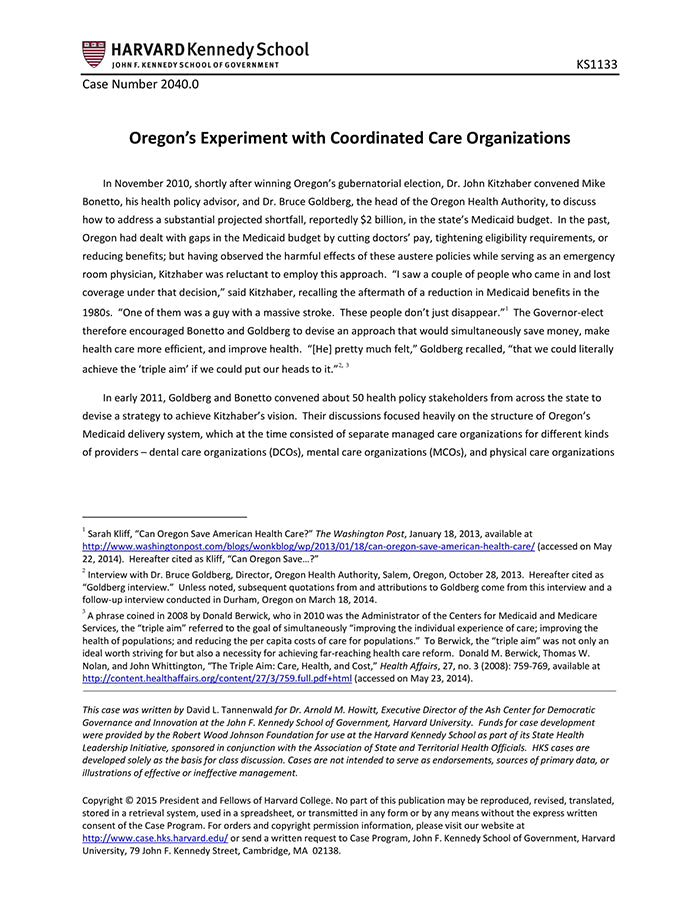Oregon's Experiment with Coordinated Care Organizations
受取状況を読み込めませんでした
When Dr. John Kitzhaber became Oregon's Governor in January 2011, the state faced a reported $2 billion deficit in the state's Medicaid budget. Consequently, Kitzhaber, working in partnership with his top health policy advisors and an array of stakeholders, undertook a multi-year effort to transform the state's Medicaid delivery system. At the time, that system consisted of separate managed care organizations for different kinds of providers; but in July 2012 the state unveiled its first coordinated care organizations (CCOs), local "umbrella" groups that would bring together an area's health care providers in a single managed care setting. The case details the effort to design, implement, and begin to evaluate CCOs. After providing background on the history of health care reform in Oregon and the recent passage of the federal Affordable Care Act, it overviews the effort to bring together an array of local stakeholders to develop a blueprint for CCOs, the subsequent focus on gaining approval for CCOs from the state legislature and federal government, and finally the process of implementing CCOs and beginning to gauge their impact. The case concludes in March 2015 when Governor Kitzhaber resigned amid concerns about the state's efforts to establish Cover Oregon, the organization set up to create the state's health insurance exchange under the federal Affordable Care Act.
【書誌情報】
ページ数:16ページ
サイズ:A4
商品番号:HBSP-KS1133
発行日:2015/8/20
登録日:2015/9/28


